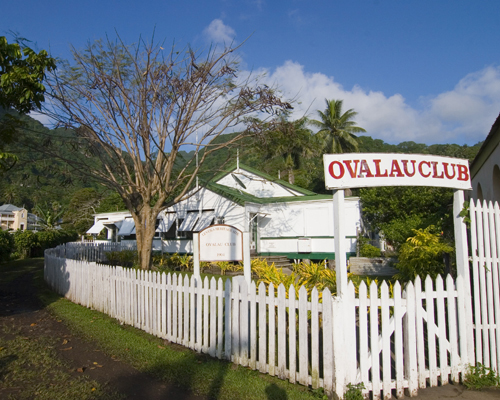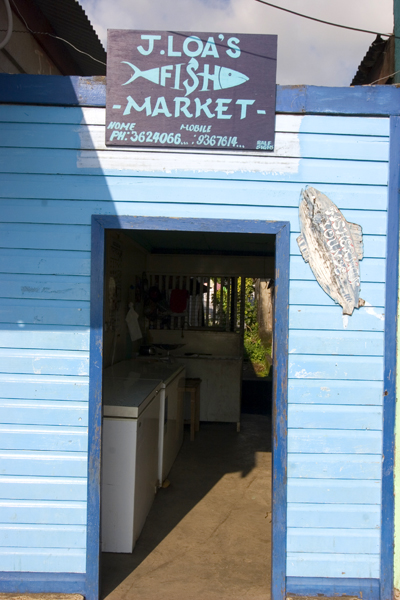Finally got around to having a drink last night at the Ovalau Club. I don’t know why it took me so long to visit. As the century-old bastion of British colonialism (there’s still a sign on the front that says “Members Only” but nobody pays any attention to it), you’d think I would have popped over for a G&T long ago. Particularly since it’s only a block away from the Royal Hotel.
With its tongue-and-groove walls and sepia portraits of English naval officers, it certainly has an authentic E.M. Forester vibe to it. But, frankly, I found the place a bit depressing. Maybe it was the faded sailing pennants on the walls or the worn floor planks that smelled of old beer. Oh, wait! I know what it was. It was the old “Saturday Night Fever” Bee Gee songs—Staying Alive, Jive Talking, Night Fever—playing on the tinny sound system. For some reason, hearing You Should be Dancing always brings me down.
There were maybe half a dozen people at the bar drinking rum and coke or Fiji Bitters. One old bloke, who introduced himself to me as Captain Crabby (I swear) must have been a pirate at one time because he ended every sentence with “argh.” Captain Crabby’s face was as tan and wrinkled as an old bull hide. His thin hair was slicked back and he wore a thick gold chain. He was wearing some foul cologne like Old Spice. Just to make conversation, I asked him if he knew anything about the old British sloop in the bay that Meli had said was haunted.
“I’ve seen it. Argh,” he said.
“Any idea who owns it?”
Argh. Some Limey. Argh.”
That was as much as I could get from Captain Crabby.
After a bit, three Japanese tourists came in. They drank shots of white rum and started singing along to the music while bouncing their heads back and forth like those porcelain dogs you put on your car dashboard.
“Ev’rybuddie shakin’ and we are stayin’ a-li-e, stayin’ a-li-e.”
There was only so much I could take of that, particularly when they started grabbing empty beer bottles as if they were microphones and pretending they were in a karaoke bar.
“Ah, ha, ha, ha, stayin’ a-li-e, stayin’ a-li-e.”
I paid my bill and walked back to the Royal Hotel where I ordered a gin and tonic, drinking it in the empty bar by myself. The silence was wonderful.



Recent Comments